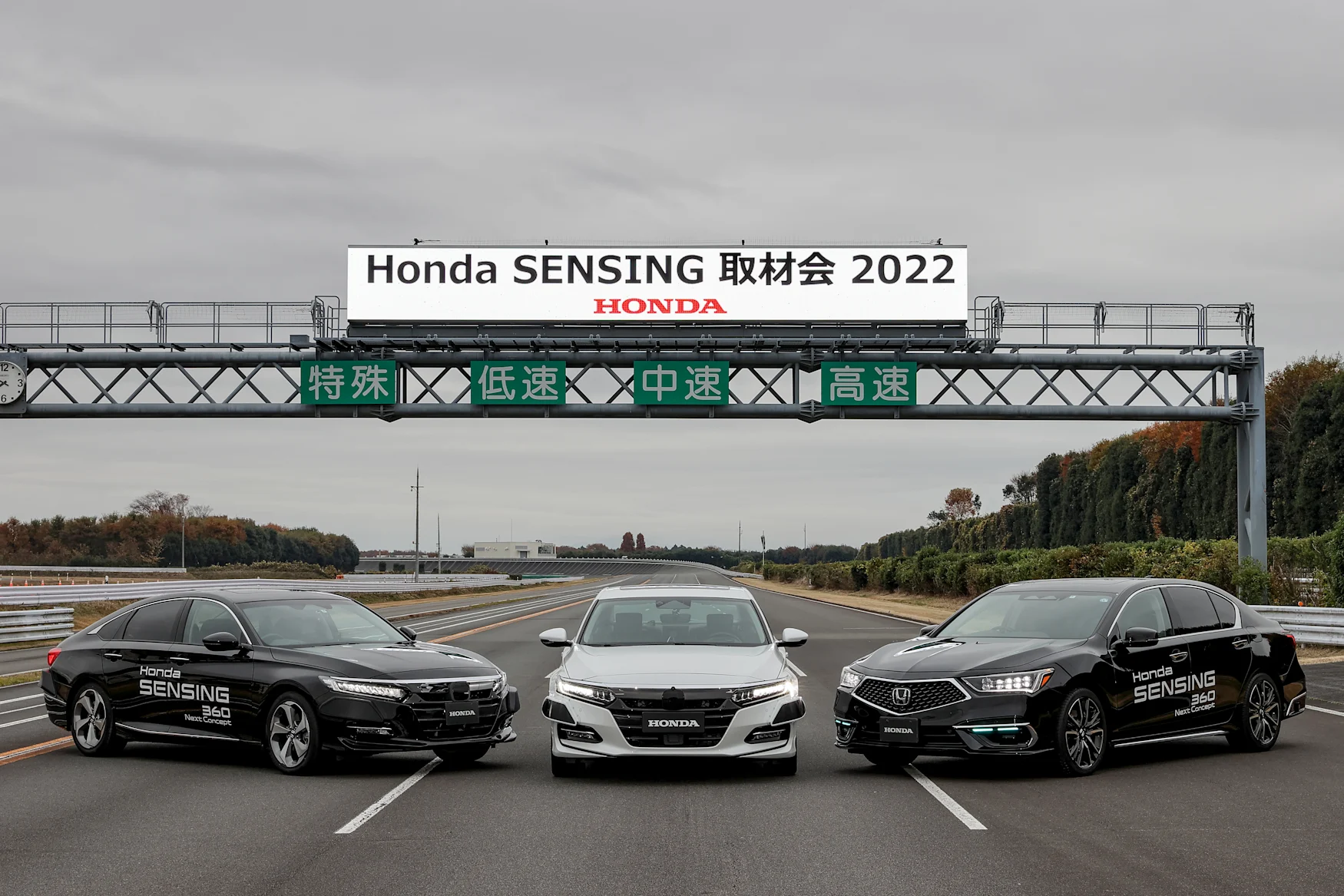Honda’s ‘Sensing 360’ next-gen driver assist will arrive in the US by 2030
Honda’s Sensing level 2 driver assist system (AcuraWatch, if you bought upscale) will be growing more capable in the coming years, the automaker revealed on Wednesday. This decision comes as part of the company’s efforts to advance its Safety for Everyone tennant and create a “collision-free society.” These advancements are debuting this year in China under the Honda Sensing 360 and Sensing Elite monikers and will begin filtering to the US market in the second half of the decade, Honda has announced.
The original Sensing system first appeared on the 2015 CR-V Touring trim package but became a standard feature in 2019. It offers an array of assists with a focus on collision avoidance and mitigation, such as pedestrian detection, automatic braking, and driver attention monitoring. The original Sensing relied on a single monocular camera. Sensing 360, which debuted this year in China, adds 5 millimeter-wave sensors to that camera to provide (you guessed it) 360-degree coverage of the vehicle, while Sensing Elite is the premier version of the ADAS suite and includes extra features like hands-free active lane-change. These two packages will begin matriculating to the US market over the next few years and become standard equipment by the end of the decade, just like the current gen Honda Sensing is today.
Honda
What’s more, Honda plans to expand Sensing 360’s capabilities in 2024 to “further reduce driver burden by detecting abnormal conditions occurring to the driver and the vehicle’s surroundings and reducing the risk of collisions.” The company didn’t clarify what “abnormal conditions might entail, it could be in-cabin monitoring a la Volvo’s EX 90 backseat baby detector, an evolution of its existing driver attention camera, or simply smarter headlights.

Honda
Sensing Elite will also receive new features in the near term. That reportedly includes, “technologies to assist the driver on non-expressways including a hands-off function while driving through a traffic jam on arterial roads; to enable hands-off functions during merging onto and exiting from an expressway at a road junction; to assist the driver by automatically parking in and driving out of a home garage,” according to a Wednesday press release. All versions of the Sensing system are slated to receive motorcycle detection capabilities by 2030 as well.
All products recommended by Engadget are selected by our editorial team, independent of our parent company. Some of our stories include affiliate links. If you buy something through one of these links, we may earn an affiliate commission. All prices are correct at the time of publishing.
For all the latest Technology News Click Here
For the latest news and updates, follow us on Google News.
